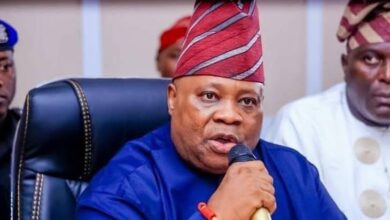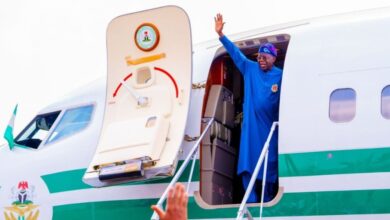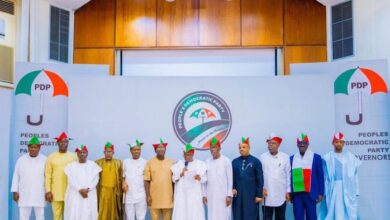Nigerians Decry Escalating Hunger And Transport Costs Amid Fuel Price Hike

Nigerians are grappling with deteriorating living conditions following a recent surge in fuel prices, exacerbating the hardships brought on by the removal of fuel subsidies and the devaluation of the naira. The pump price of fuel, which was previously around N800 per litre, has now jumped to N1,150 per litre, causing widespread frustration and financial strain across the country. This development has led to a rapid increase in the cost of transportation, which in turn has driven up the prices of essential commodities like food, pushing many Nigerians into deeper economic hardship.
Impact on Transportation in Major Cities
In Abuja and the Federal Capital Territory, intra-city transport fares have risen by N100, while inter-state fares have surged by N500 to N1,000, depending on the route. Commuters in Lagos are facing similar challenges. For instance, Donald Eke, a worker in a financial firm, reported that his transport fare from New Road to Lekki Phase 1 has more than doubled, increasing from N300 to N700. Despite attempts to negotiate, many commuters are left struggling with skyrocketing fares.
In some areas of Lagos, such as Iyana Iba to Iyana Ipaja, the fare has risen from N500 to between N700 and N800, while a trip from the Lagos State University gate to Iyana Ipaja has jumped from N400 to N700, reflecting a 75% increase. Routes from Igando to Egbeda and Magboro to Oshodi have also seen significant fare hikes, with increases of up to 75%, leaving passengers frustrated and financially strained.
Ogun State: 100% Fare Hike
In Ogun State, passengers plying the Lagos-Ibadan Expressway have seen a 100% increase in transport fares. A sales representative, Treasure Ettah, who travels from the Prayer City axis to Gbagada in Lagos, reported that his fare has doubled from N500 to as high as N1,400. Similarly, Chinedum Ucheaga, a pharmacist who commutes between Magboro and Ojodu, Berger, noted that his fare has increased by at least 60%, now paying between N500 and N700, with some commuters spending as much as N1,000 due to road construction along the expressway.
These rising costs are having a severe impact on commuters, with many saying they can barely afford transportation. Routes from Magboro to Oshodi, previously costing N800, now require N1,400, while other routes such as Magboro to Ojota and Ibafo to Magboro have also seen steep increases.
Other Regions Hit Hard
In Osun State, the fare hikes have affected local commercial operators, with residents of Osogbo noting sharp increases in transportation costs to neighboring towns such as Okuku, Ife, Ilesa, and Iwo. Fares have jumped from N1,500 to N2,500 for some routes, while inter-state fares from Osogbo to Lagos and Ondo have risen to between N5,000 and N8,000. Similarly, in Ondo State, petrol prices range from N1,000 to N1,200 per litre, causing transport fares for even the shortest distances to spike.
The impact of the fuel price increase is also being felt in Plateau, Yobe, and Benue States. In Plateau State, for instance, the cost of traveling from Jos to Shendam has risen from N4,000 to N6,000, significantly reducing the number of travelers and causing some transportation hubs to sit idle for hours without passengers.
Worsening Economic Strain
Across the country, the increase in fuel prices and transportation costs has severely affected Nigerians’ ability to afford basic necessities. Ireti Ayodele, a commuter in Lagos, lamented that the price hike has drastically reduced her purchasing power, with her income no longer sufficient to cover transport costs. She pointed out that a trip that cost N500 on Thursday had risen to N1,000 by Friday, underscoring the rapid and overwhelming pace of the price increases.
In addition to transportation challenges, car owners like Edwards Oladeinde, who recently bought four litres of petrol for N6,000, expressed frustration with the inconsistency in fuel prices, calling on the government to stabilize the situation to ease the growing financial burden on citizens.
Calls for Government Intervention
Many Nigerians are calling on the government to address the rapidly worsening living conditions. The removal of the fuel subsidy and the devaluation of the naira were expected to have significant economic impacts, but the pace at which fuel prices and the cost of living have surged has left many unprepared. The country now faces growing unrest as Nigerians continue to struggle to make ends meet in the face of skyrocketing inflation, increasing transportation costs, and escalating prices for essential goods.
Without government intervention or relief measures, the situation is expected to worsen, with more Nigerians unable to afford even basic transportation, let alone the necessities of life.



